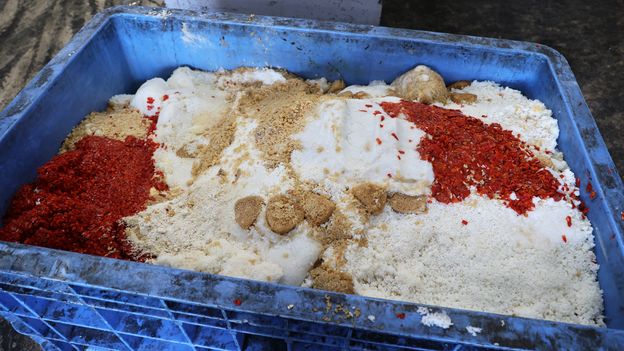…
Japan’s small size and mountainous terrain present challenges for food self-sufficiency. The country imports almost two-thirds of its food and three-quarters of its livestock feed. Yet each year, Japan throws out 28.4 million tonnes of food – much of it edible.
This comes with steep environmental and economic costs. Compared to many countries, consumers in Japan pay higher prices for food because so much of it is imported. And they also pay taxes to cover the majority of the 800bn yen (£4.2bn/$5.4bn) the country spends each year on waste incineration. Food makes up about 40% of the rubbish that Japan incinerates, and incineration produces significant air pollution and greenhouse gas emissions.
As the world’s fifth-largest emitter of greenhouse gases, Japan has set goals of cutting emissions by 46% by 2030 and becoming fully carbon neutral by 2050. Tackling food wastewill have to be a part of those efforts, Takahashi says.



deleted by creator
The county I live in (Northern California) requires that household food waste go into the curbside compost bin, or home compost. They do random checks to make sure you haven’t put any food in the landfill bin and you can get a fine.
It gets turned into compost for landscaping, along with the yard waste, not food though.
deleted by creator
That is neat! But since it charges you to put things in, wouldn’t that encourage people to just throw their food in the trash? Or is that discouraged somehow?
When I lived in Seoul, stores sold different colored bags on behalf of the city for every type of waste disposal. They will only pick up the official bags and they were transparent-ish so it was easy for them to see whether you were breaking the bag type rules.
So, even if these receptacles charge money, I expect it would be cheaper than regular trash.
Interesting! Does the curbside program bill you by weight as well? That sounds labor intensive, compared to here where you just rent the $small, $$medium or $$$large bin and pay quarterly regardless of use. And recycling and composting are free.
deleted by creator
OH, I get it. The pick up price is the purchase price. That’s pretty clever. Does that mean the trash collectors have to pick every bag up by hand and glance at the contents? How many categories of trash/bag are there?
deleted by creator
In my corner of Japan, they just ask to separate it out and wet it down (presumably to prevent too much getting to hot and causing potential melting/burning). I’m rural enough that I and others around here compost on our own. Some parts of Japan have optional composting. I’m not immediately aware of anywhere that has required separation of and/or compositing of organics.
This is state law in California. Enforcement differs in each area. I don’t believe Oakland checks.
They started setting up composting bins around the NYC. Most of them are full of glass bottles and plastic dog poop bags.